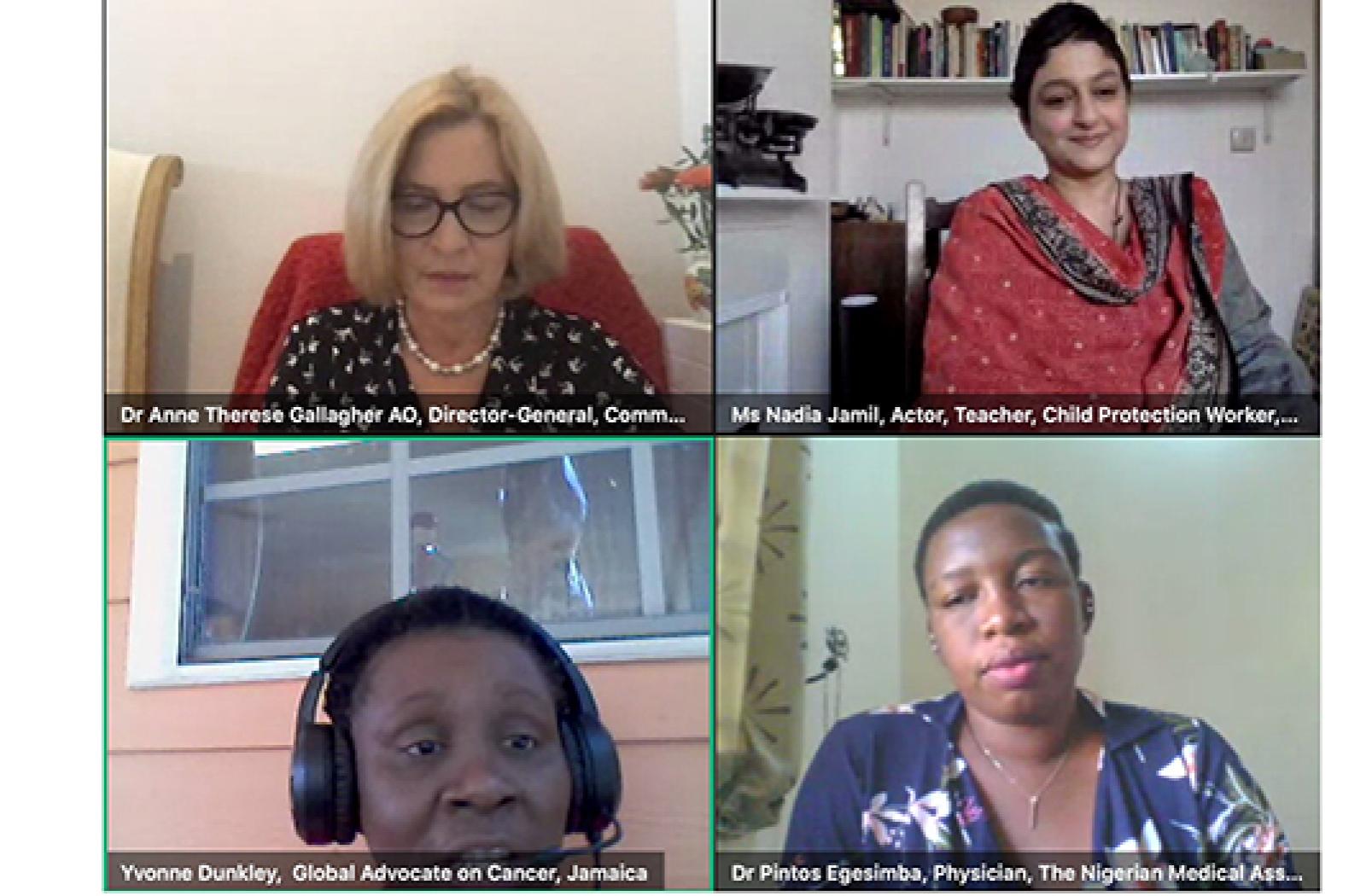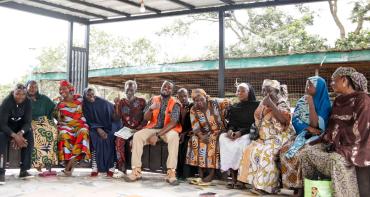Health advocates, cancer survivors and celebrities have joined the Commonwealth’s campaign to eradicate cervical cancer in its 54 countries.

Health advocates, cancer survivors and celebrities have joined the Commonwealth’s campaign to eradicate cervical cancer in its 54 countries.
We can stop cervical cancer
Their message is “we can stop cervical cancer” with simple solutions such as vaccination and screening, which can save an estimated five million women across the globe by 2050.
Currently, the disease kills a woman every five minutes in the Commonwealth due to lack of access to vaccines and treatment, but 94 per cent of cases are preventable.
Awareness campaign
The Secretariat unveiled its awareness campaign at the high-level virtual event, hosted in partnership with the Commonwealth Foundation and the organisers of the 2020 London Global Cancer Week (LGCW). The campaign was one of the highlights of this year's LGCW - a key contributor to the global fight against cancer.
The campaign features former Nigerian Health Minister Isaac Adewole, Bangladeshi actress Jaya Ahsan, England’s National Health Services Cancer Director Cally Palmer, New Zealand’s National Cancer Control Director Diana Sarfati and many others.
cancer week compilation landscape final
Invest in technologies and prevention
Commonwealth Secretary-General Patricia Scotland said: “Imagine sitting in front of a doctor and hearing the dreaded words: ‘you have cancer’. Imagine having to break the news to your family. These were the heart-wrenching, devastating moments that we shared with our survivors last week.
“Their stories underscored the urgent need for the Commonwealth to work with international advocates to raise awareness of this public health crisis, which affects every family, community and social class.
“Cervical cancer is particularly rampant in our member countries. The Commonwealth accounts for one-third of the world’s population, but 40 per cent of global incidences and 43 per cent of mortality from cervical cancer.”
She described these largely avoidable deaths as a “real tragedy” which can be prevented and treated.
The Secretary-General continued: “Commonwealth members including Australia and Rwanda have shown us that prevention is not only possible but achievable when we prioritise and invest in pioneering technologies and prevention strategies.
“I believe if we draw on the expertise and best practices and approaches, inside and outside the Commonwealth, and work collaboratively, we can eliminate this disease.”
Challenges and solutions
At the event, countries shared their challenges and solutions in providing effective prevention and treatment services. Representatives from Belize spoke about their new ‘drive-through’ clinics to ensure girls receive vaccination against human papillomavirus – a major cause of cervical cancer - during the pandemic.
Australia described the dramatic reduction in cervical cancer cases since the country introduced a national cervical screening programme in 1991 and a publicly-funded school immunisation initiative in 2007. The country is on the path to eliminating cervical cancer within 20 years with the current trajectory.
In the campaign video, Dr Sarfati said: “Cervical cancer is a second or third leading cause of cancer death for women in the Pacific. They need support and resources to help deliver vaccine and screening programmes to prevent new cases.”
Supporting national efforts
The Secretariat shared its ongoing initiatives to support national efforts in the 54 member countries to ensure all girls between nine-to-13 years old are vaccinated by 2025.
Representatives from member countries heard the powerful testimonies of survivors who spoke of the role of the language in cancer discussions, which can change public perception of the disease. This shift, they insisted, could encourage more people to receive vaccines and undergo screenings.
The Commonwealth Foundation’s Director-General, Anne Gallagher, stressed the importance of amplifying the human interest angle in discussions about cancer.
She said: “We need to bring people into every aspect of cancer awareness, prevention and treatment. Whether it is the private sector, those working in rural communities, survivors and top oncology researchers, everyone said the same thing, people must be at the centre.”
The outcomes from the event will contribute to the policy proposals for the 2021 Commonwealth Heads of Government Meeting in Rwanda.



